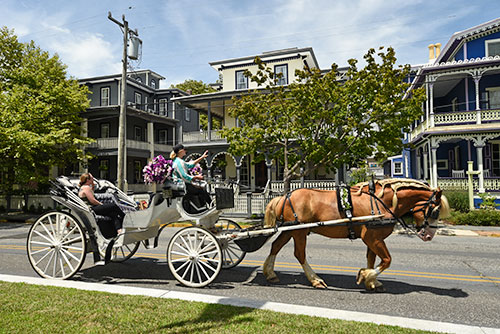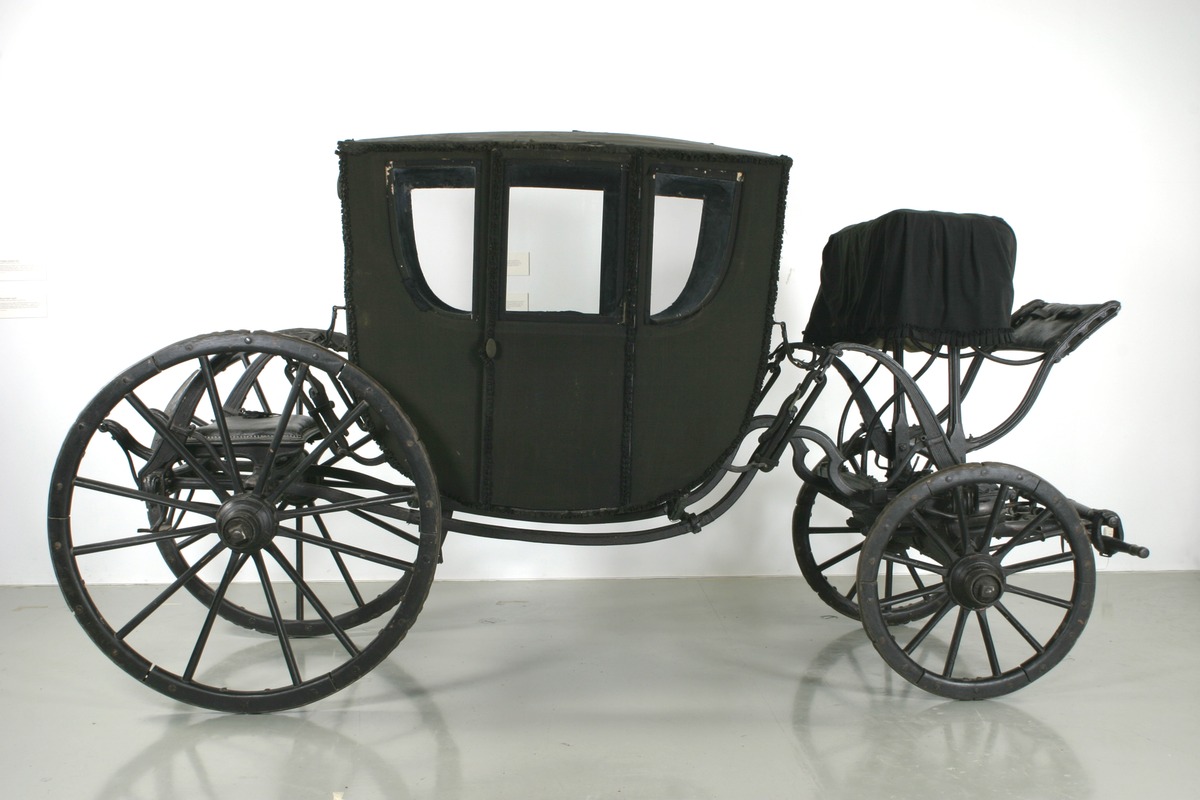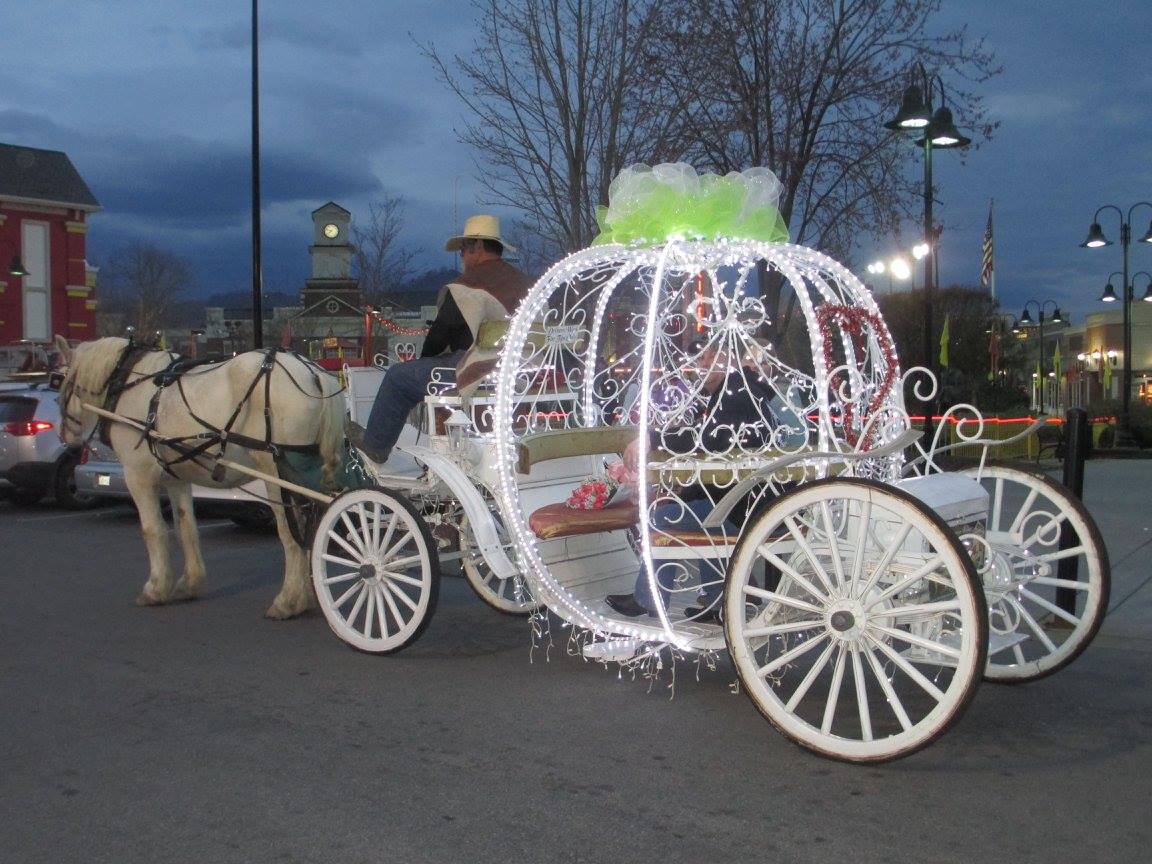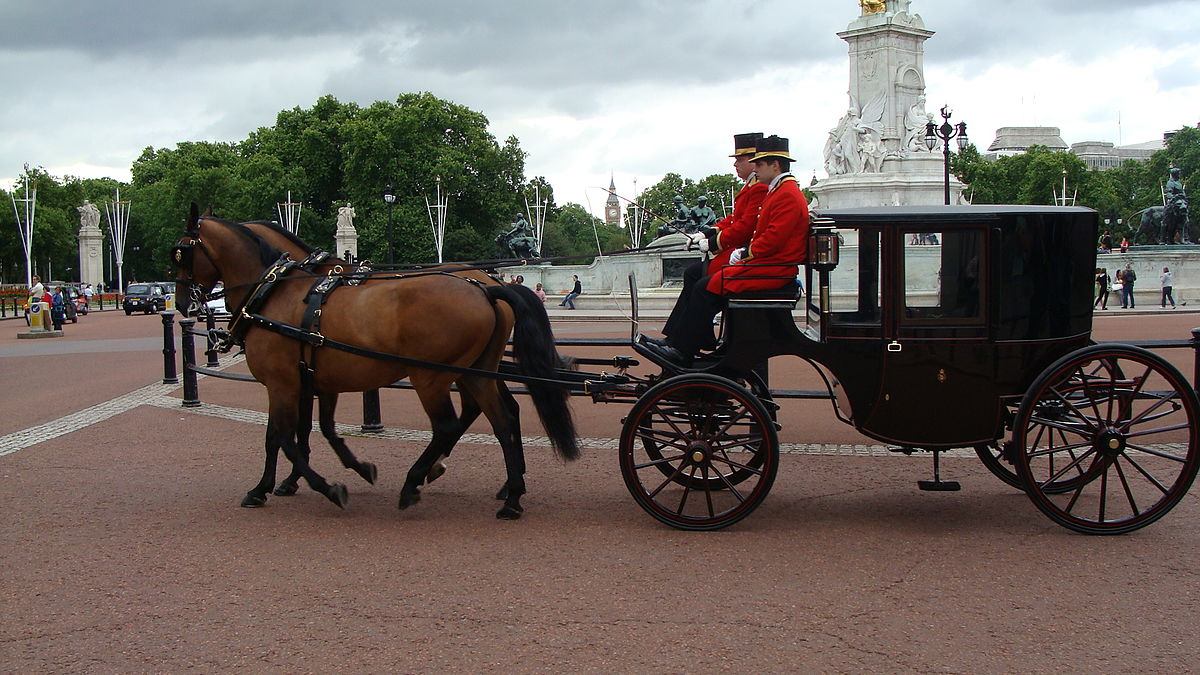
noun
- a wheeled vehicle for conveying persons, as one drawn by horses and designed for comfort and elegance.
- baby carriage.
- British. a railway passenger coach.
- a wheeled support, as for a cannon.
- a movable part, as of a machine, designed for carrying something.
- manner of carrying the head and body; bearing: the carriage of a soldier.
- Also called carriage piece, horse. an inclined beam, as a string, supporting the steps of a stair.
- the act of transporting; conveyance: the expenses of carriage.
- the price or cost of transportation.
- (in a typewriter) the moving part carrying the platen and its associated parts, usually set in motion to carry the paper across the point where the print element or type bars strike.
- management; administration.
noun
- British a railway coach for passengers
- the manner in which a person holds and moves his head and body; bearing
- a four-wheeled horse-drawn vehicle for persons
- the moving part of a machine that bears another parta typewriter carriage; a lathe carriage
- (ˈkærɪdʒ, ˈkærɪɪdʒ)
- the act of conveying; carrying
- the charge made for conveying (esp in the phrases carriage forward, when the charge is to be paid by the receiver, and carriage paid)
late 14c., “act of carrying, means of conveyance; wheeled vehicles collectively,” from Anglo-French and Old North French cariage “cart, carriage, action of transporting in a vehicle” (Old French charriage, Modern French charriage), from carier “to carry” (see carry (v.)). Meaning “individual wheeled vehicle” is c.1400; specific sense of “horse-drawn, wheeled vehicle for hauling people” first attested 1706; extended to railway cars by 1830. Meaning “way of carrying one’s body” is 1590s. Carriage-house attested from 1761.
 Liberal Dictionary English Dictionary
Liberal Dictionary English Dictionary


